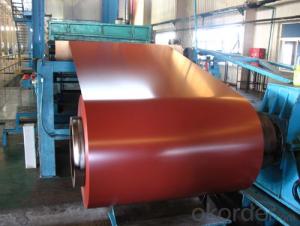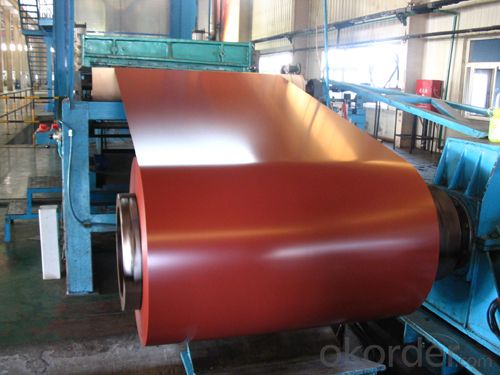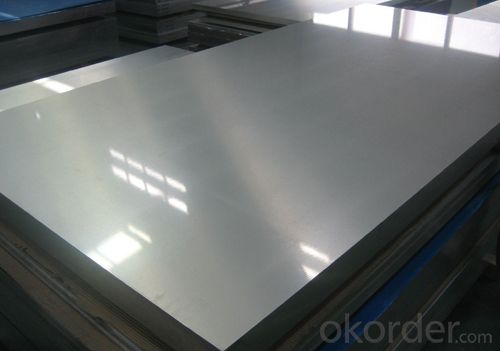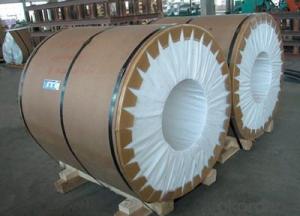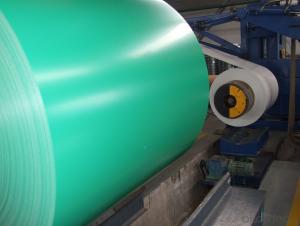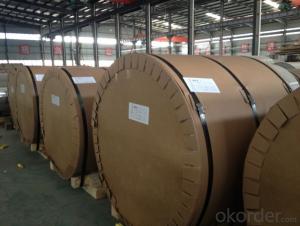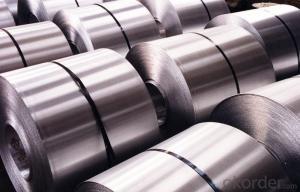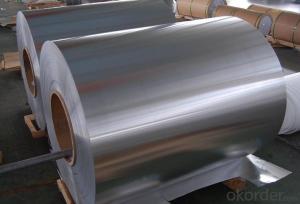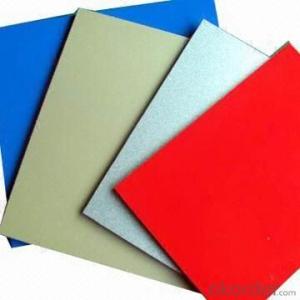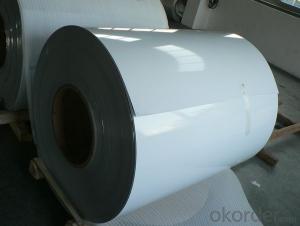Aluminum Coil White for Sandwich Panel ACP Production
- Loading Port:
- Shanghai
- Payment Terms:
- TT OR LC
- Min Order Qty:
- 20 m.t
- Supply Capability:
- 10000 m.t/month
OKorder Service Pledge
OKorder Financial Service
You Might Also Like
Specification
1. Specification of Aluminum
1) Alloy | 1050, 1060,1100, 3003 3004 3105 3005 5005 5052 etc |
2) Temper | O/H12/H14/H1/H18/H32/H34/H36/H38//H111/H112/H116/H321/T6/T651/T3/T351 etc |
3) Thickness | 0.1mm to 6mm |
4) Width | 20mm to 3300mm |
5) Coil weight | 100kgs to 6 tons depends on actual requirement |
6) Core material | Aluminum alloy |
7) Coil Inner diameter | 76mm, 152mm,or as required |
2. Application of Aluminum
Aluminum is a versatile material integral to modern life. The metal is found in everything from soda cans to cell phones to window frames to airplanes.
3. Feature of Aluminum
The Aluminum Company is proud to install Owens Corning and CertainTeed roofs in homes throughout North Carolina, from Greensboro to Raleigh Durham and across the state
4. Certificate:
SGS and ROHS(if client request, paid by client), MTC(plant provided), Certificate of Origin(FORM A, FORM E, CO)
5. Image of Aluminum
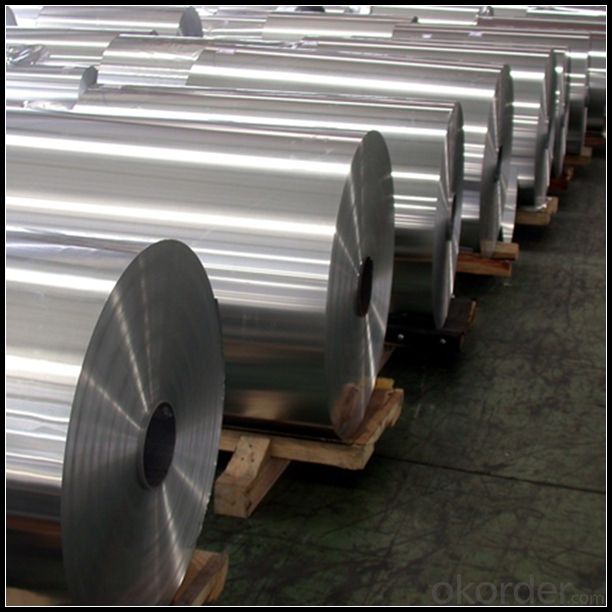
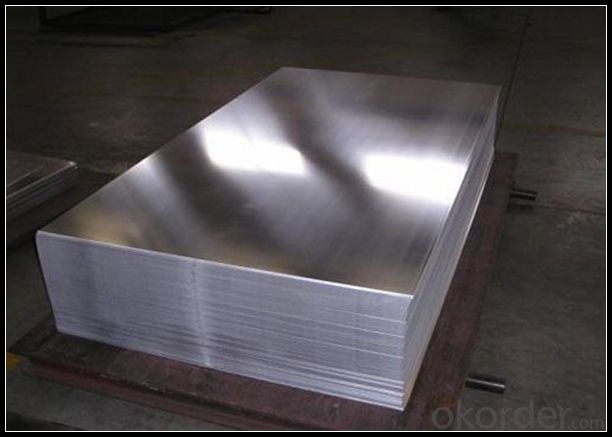
6. FAQ
Q: What is the produce prase? | ||||
A: Normally it would be 40days after received your deposit. | ||||
Q: Can you provide free samples? | ||||
A: Yes, free samples will be sent to you on freight at destination. | ||||
Q: Can I get your latest catalogue? | ||||
A: Yes, it will be sent to you in no time. | ||||
Q: What is the MOQ? | ||||
A: 3 tons | ||||
Q: What are your payment terms? | ||||
A: We accept L/C, D/A, D/P, T/T, West Union,etc. |
- Q: What is the maximum width-to-thickness ratio for aluminum coils?
- The maximum width-to-thickness ratio for aluminum coils can vary depending on the specific application and industry standards. However, a common maximum ratio is typically around 30:1.
- Q: How are aluminum coils cut and shaped?
- Aluminum coils are cut and shaped using various methods and tools, depending on the desired shape and size. The most commonly used techniques include slitting, shearing, and laser cutting. Slitting is the process of cutting a wide coil into narrower strips. It involves feeding the coil through a set of circular blades that make precise cuts along the length of the coil. This method is commonly used to produce thin strips of aluminum that are then further processed or used in various applications. Shearing is another common method used to cut aluminum coils. It involves using a machine with a moving blade to cut through the coil. The blade applies pressure to the coil, resulting in a clean and straight cut. Shearing is often used for cutting thicker aluminum coils and is suitable for producing straight cuts without any deformation. Laser cutting is a more advanced technique used to cut and shape aluminum coils. It involves using a high-powered laser beam to melt or vaporize the metal along a predetermined path. This method offers high precision and allows for complex shapes and designs to be cut into the aluminum. Laser cutting is commonly used in industries where intricate and detailed cuts are required. After the cutting process, the aluminum coils can be further shaped using various methods such as bending, rolling, stamping, or forming. These techniques allow the aluminum to be shaped into different geometries and forms according to the specific requirements of the desired application. Overall, the cutting and shaping of aluminum coils involve a range of techniques and tools, each suited for different requirements. The chosen method depends on factors such as the thickness of the coil, the desired shape, and the precision needed for the final product.
- Q: Is it possible to use a grinder for cutting aluminum coil?
- <p>Yes, you can use a grinder to cut aluminum coil, but it's essential to choose the right type of grinder and blade. A metal cutting grinder with a suitable blade designed for cutting aluminum is recommended. Ensure the blade is sharp and the grinder is powerful enough to handle the material. Always wear appropriate safety gear, including gloves and eye protection, as cutting aluminum can produce sharp edges and flying debris. Be cautious of the heat generated during cutting, as it can warp or damage the aluminum.</p>
- Q: Is it safe and effective to use aluminum coil for baking purposes?
- <p>Yes, aluminum coil can be used for baking. It is a common material in baking due to its excellent heat conductivity, which allows for even heating and browning of baked goods. However, it's important to ensure that the aluminum coil is food-grade and clean to avoid any contamination. Additionally, some people may be concerned about potential health risks associated with aluminum, although these concerns are generally considered minimal when using aluminum cookware for baking.</p>
- Q: We have all heard the Us saying aluminum and their euro counterparts saying aluminium. I assumed this was just a small difference in culture or location. But, while reading my chemistry book (Chemistry the Central Science 12th) i came across a section saying: Cations formed from nonmetal atoms have names that end in -ium: NH4+ ammonIUM ion, H3O+ hydronIUM ion. So, i have came up with a hypothesis, could it be possible that when the periodic table was coming together, the aluminium was changed to aluminum to allow the rules to work? Thus making aluminum the correct spelling? Give me your thoughts.
- It just depends on which side of the Atlantic Ocean you live. Come to think of it though, most metals end in ium. Not just the ions.
- Q: How are aluminum coils processed and shaped into different forms?
- Aluminum coils are processed and shaped into different forms through a series of manufacturing processes. First, the coils are uncoiled and fed into a machine where they are cleaned, removing any dirt or impurities. Then, the coils are passed through a series of rollers that apply pressure to shape the aluminum into the desired form, such as sheets, plates, or foils. Additional processes like annealing, cutting, and bending may be applied to further shape the aluminum. Finally, the formed aluminum is typically subjected to surface treatments, such as anodizing or coating, to enhance its durability or appearance.
- Q: What are the different color options available for aluminum coils?
- There are several different color options available for aluminum coils. Some of the most common colors include white, black, gray, brown, and beige. These colors are achieved through a process called coil coating, where a layer of paint is applied to the aluminum coil. The paint is typically a high-quality, durable coating that is resistant to fading, chipping, and cracking. In addition to these standard colors, custom color options are also available, allowing for a wide range of choices to match any aesthetic preference or design requirement. These custom colors can be achieved through a color matching process, where the desired color is created specifically for the project. Overall, the variety of color options for aluminum coils ensures that there is a suitable choice for any application, whether it be for residential, commercial, or industrial purposes.
- Q: what is aluminium toxic amount on a human's general physiological system? and what is the usual amount aluminium injested?thankyou
- Go okorder /
- Q: This question asks for a method to calculate the diameter of an aluminum coil using its weight and density.
- <p>To calculate the diameter of an aluminum coil based on its weight and density, you first need to know the volume of the coil. The formula for volume (V) is V = mass (m) / density (蟻). Once you have the volume, you can use the formula for the volume of a cylinder, V = 蟺r虏h, where r is the radius and h is the height (or length) of the coil. If you know the height of the coil, you can solve for the radius and then double it to find the diameter (D = 2r). Ensure you have consistent units for all measurements. This calculation assumes the coil is cylindrical and uniform in thickness.</p>
- Q: Can aluminum coils be used in vacuum applications?
- Yes, aluminum coils can be used in vacuum applications. Aluminum is a common choice for vacuum systems due to its low outgassing properties, high thermal conductivity, and resistance to corrosion. It is suitable for various vacuum applications such as cooling, heating, and heat transfer.
Send your message to us
Aluminum Coil White for Sandwich Panel ACP Production
- Loading Port:
- Shanghai
- Payment Terms:
- TT OR LC
- Min Order Qty:
- 20 m.t
- Supply Capability:
- 10000 m.t/month
OKorder Service Pledge
OKorder Financial Service
Similar products
Hot products
Hot Searches
Related keywords
